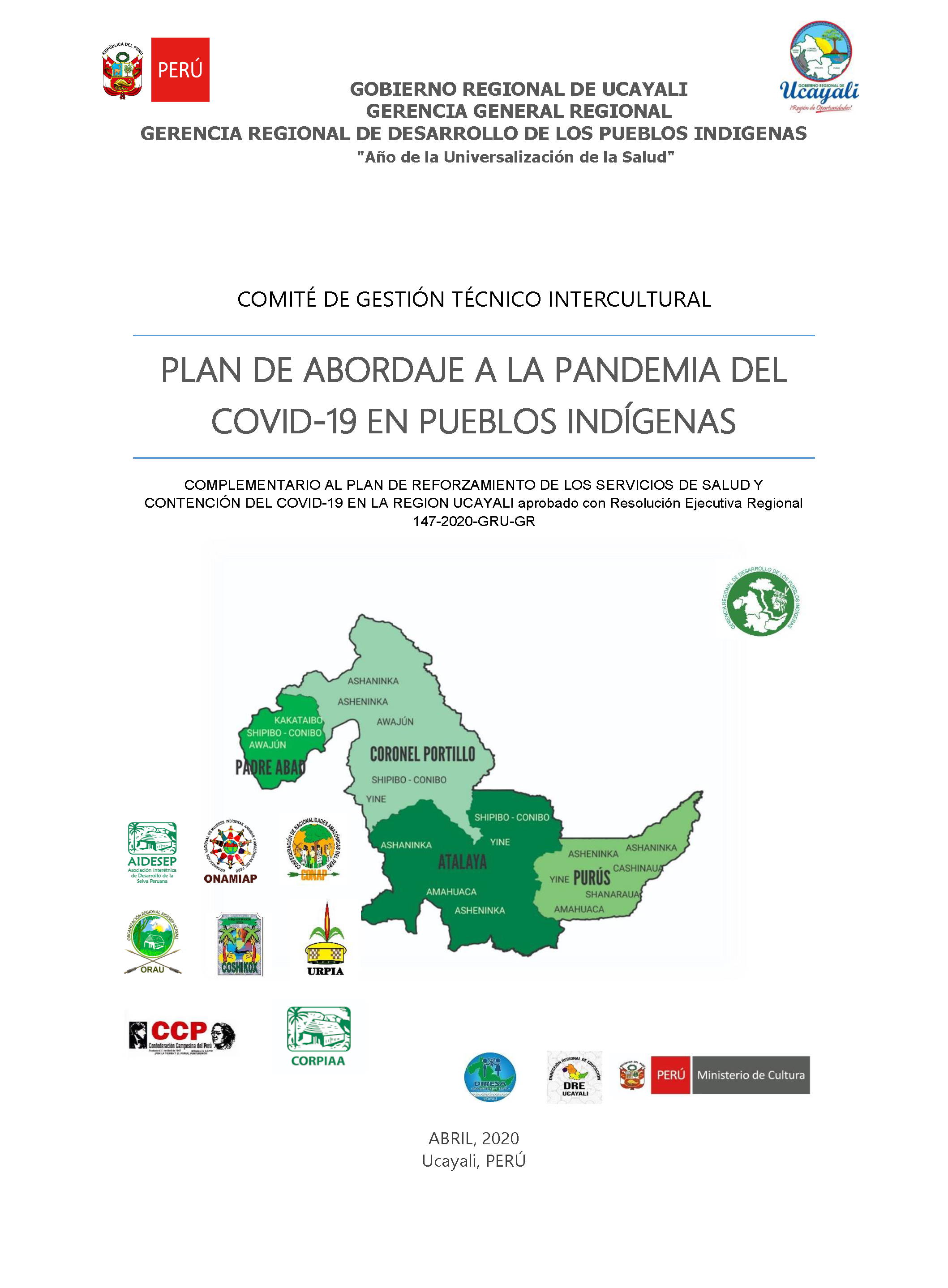In Perú, the Regional Government of Ucayali is working quickly to mobilize a Regional Plan for Addressing the COVID-19 Pandemic in Indigenous Populations. The Plan, developed by the Regional Government of Ucayali and the Regional Management for the Development of Indigenous Peoples of Ucayali, in conjunction with AIDESEP and CONAP (two of the tree national indigenous organizations that make up Peru’s Regional Committee for Indigenous Peoples and Local Communities), responds to the regional challenges of protecting indigenous communities and isolated peoples whose social and geographic contexts make them particularly vulnerable to the impacts of COVID-19.
Ucayali’s Plan was formally adopted by Governor Francisco Antonio Pezo Torres on May 7th, through Executive Resolution 172-2020-GRU-GR.
The Plan promotes cross-sectoral and intergovernmental actions of prevention and containment of the virus using an intercultural approach integrating the needs of indigenous communities through the participation of representative indigenous organizations.
Objectives of the plan include:
-
Monitor communal territories and regional and international borders by strengthening the capacity of authorities, community actors, monitoring committees and communal self-defense.
-
Promote inter-institutional coordination.
-
Identify appropriate measures to reduce the transmission of the virus that are differentiated and relevant to the regional reality.
-
Ensure the provision of water and food to vulnerable communities.
-
Implement sanitation measures for the protection of Indigenous Peoples in Isolation and Initial Contact (PIACI).
-
Manage resources through national and subnational governments, international cooperation, civil society and others working to implement the proposed actions.
The Plan’s operational strategy consists of the following four components:
-
Strengthening the first and second levels of healthcare and responsiveness within indigenous communities.
-
Implementing social immobilization and closure on district communal boundaries.
-
Food and nutrition security to vulnerable communities.
-
Implementing an intercultural communications plan.

